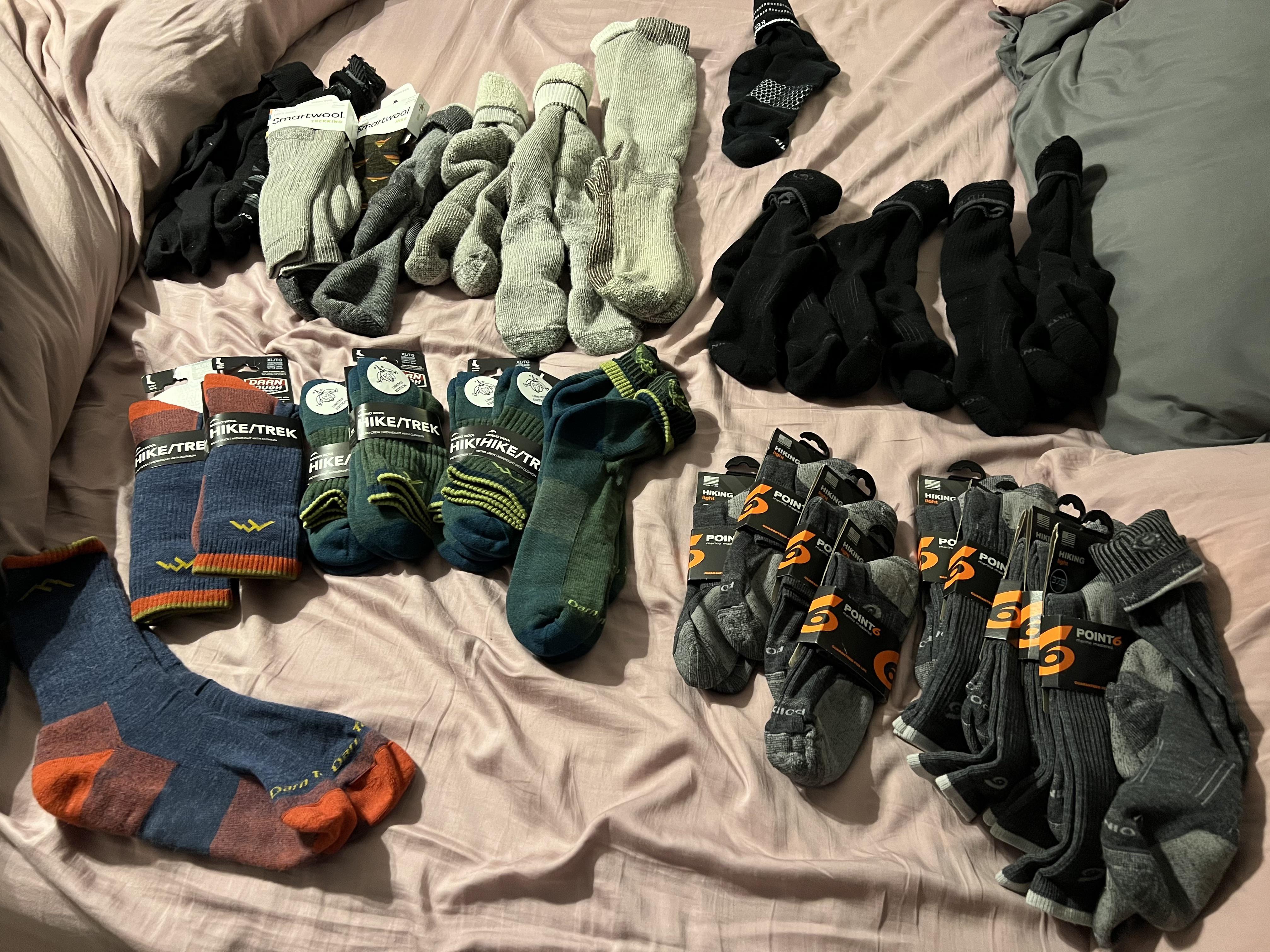

Kept a hand knit wool scarf (they made for me) for around a decade. Outgrew the style but it was a damn good scarf.


Kept a hand knit wool scarf (they made for me) for around a decade. Outgrew the style but it was a damn good scarf.
Its possible some wires got crossed behind scenes, some database/software mixup.
Maybe email proton support if you’re concerned? I’ve had some similar mixup happen with banking and they got it all sorted after I complained (I was getting emails intended for someone else).
Edit: either way, I think you should let them know in case its phishing or something broken on their end.


That is their official email address. Did you make an Alias or something and you forgot?
This is my local coffee roaster, there’s 30 different raw beans to choose from. You choose your roast (and grind if you want) and in about 10-15 mins you have freshly roasted coffee made to order. They usually have 2 different decaf options to choose from and they definitely changed my opinion about decaf, best I’ve ever had.


More context here, this whole situation stems from a government policy issue that most media on this topic will miss.
Kazuhito Yamashita, a research director at the Canon Institute for Global Studies, speaks in an interview with the Mainichi Shimbun in Tokyo’s Chiyoda Ward on Aug. 6, 2024. (Mainichi/Megumi Udagawa)
Q: What is the main factor, then?
A: The reason there is a shortage of rice is because of the acreage reduction policy which decreases the amount of land devoted to cultivation. Under acreage reduction, rice production is cut to raise market prices, and the government provides subsidies to rice farmers who switch to other crops such as wheat or soybeans. Japan has continued this policy for over 50 years.
A terrible policy
Q: It’s said that the decline in rice consumption is serious, but if the amount produced increased and the price went down, people would eat more, wouldn’t they?
A: Exactly. Rice acreage reduction is an absolutely terrible policy. The government spends over 300 billion yen (about $2.06 billion) in subsidies annually to decrease the amount of rice produced, thus going out of its way to raise the price and increasing the burden on consumers. In the medical field, for example, the government spends money to reduce the financial burden on citizens, but the rice acreage reduction does the opposite – it is using taxpayer money to make consumers suffer.
https://mainichi.jp/english/articles/20240823/p2a/00m/0bu/024000c
Edit: I wonder if there’s a happy middle ground. Increase production but then the govt purchases the excess to either stockpile or sell off the excess to the rest of the world (so it doesn’t lower domestic prices too much). And by increasing the stockpile the government could also more readily adapt to market shocks like this due to climate change, extreme weather, wars, etc.


More context here, this whole situation stems from a government policy issue that most media on this topic will miss.
Kazuhito Yamashita, a research director at the Canon Institute for Global Studies, speaks in an interview with the Mainichi Shimbun in Tokyo’s Chiyoda Ward on Aug. 6, 2024. (Mainichi/Megumi Udagawa)
Q: What is the main factor, then?
A: The reason there is a shortage of rice is because of the acreage reduction policy which decreases the amount of land devoted to cultivation. Under acreage reduction, rice production is cut to raise market prices, and the government provides subsidies to rice farmers who switch to other crops such as wheat or soybeans. Japan has continued this policy for over 50 years.
A terrible policy
Q: It’s said that the decline in rice consumption is serious, but if the amount produced increased and the price went down, people would eat more, wouldn’t they?
A: Exactly. Rice acreage reduction is an absolutely terrible policy. The government spends over 300 billion yen (about $2.06 billion) in subsidies annually to decrease the amount of rice produced, thus going out of its way to raise the price and increasing the burden on consumers. In the medical field, for example, the government spends money to reduce the financial burden on citizens, but the rice acreage reduction does the opposite – it is using taxpayer money to make consumers suffer.
https://mainichi.jp/english/articles/20240823/p2a/00m/0bu/024000c
Edit: I wonder if there’s a happy middle ground. Increase production but then the govt purchases the excess to either stockpile or sell off the excess to the rest of the world (so it doesn’t lower domestic prices too much). And by increasing the stockpile the government could also more readily adapt to market shocks like this due to climate change, extreme weather, wars, etc.


Help me Futo’s Louis Rossmann, you’re my only hope.


Agreed. I live in Japan and self censor what I say online, avoid leaving negative but truthful business reviews, because there is a very real risk of being sued for libel.


Yes, if you only consider the letter of the law. But the spirit of the law and the pro-business, pro-those-in-power courts rarely rule in the individual’s favor. The laws weren’t made for you the individual.
Don’t Get Sued! Libel, Slander, and Defamation Laws in Japan
More relevant discussion here about the concept of face.
edit: Key comment here:
“The law in Japan has a cultural and legal background in much older laws about “damage to honour”. Anything that damages someone’s social standing, regardless of whether a specific claim is being made, is not on and is liable to be considered defamatory. Further, the lack of a specific claim makes the “truth and public interest” bar much, much harder to meet since you can’t claim that your statement was truthful or in the public interest if there’s no specific claim the business or person can respond to. If you’re just being insulting you’re one a one-way trip to a legal spanking.”
I live in Japan and self censor what I say online, avoid leaving negative but truthful business reviews, because there is a very real risk of being sued for libel.
Edit 2: I dug up some China specific info: “In Understanding and Application of the 1993 Answers, the SPC [Supreme People’s Court] clarified that truth was NOT a defense to defamation. If a work insults and damages a person’s reputation, it is defamatory even if true.”
I’m having trouble finding more info about the specifics of the ruling in the Tesla case (AP, CBS, English media don’t provide any info), but I’d bet my dollarydoos that the ruling relates to the Chinese civil code concerning the rights of ‘reputation’ and ‘honor’ of Tesla being infringed in this instance. The AP article misses a lot of this nuance and detail, which is unfortunate. Something like The Atlantic or the Economist, Foreign Affairs (or NYT 20 years ago) with long form articles and investigative journalism from the days of old might have provided this detail, but these days BBC, CNN, et al care more about click-thru rates so we don’t get the full picture.


Japan has similar laws curbing free speech. It comes down to the east asian concept concept of ‘face’.
Japan’s defamation/libel laws, similar to this Tesla case China, don’t matter if what you said is true. What matters is that you disrespected the ‘face’ and reputation of those in power.
For example, if a news agency reports on a rapist, or an individual puts up a bad review online: it doesn’t matter if it is true. The ‘victim’ sues you for libel/defamation for speaking the truth because you didn’t “give them face” and you hurt their public reputation. Expect the police to come knocking and ask you to remove your truthful reviews, or you risk jail time or civil penalties.
Edit:
The judicial system in China is fucked up beyond repair.
I suspect the judicial system here is working exactly as intended. Its the laws in Japan/China that are fucked when it comes to free speech vs protecting the ‘face’ of those in power.
Edit 2: I dug up some China specific info: “In Understanding and Application of the 1993 Answers, the SPC [Supreme People’s Court] clarified that truth was NOT a defense to defamation. If a work insults and damages a person’s reputation, it is defamatory even if true.”
I’m having trouble finding more info about the specifics of the ruling in the Tesla case (AP, CBS, English media don’t provide any info), but I’d bet my dollarydoos that the ruling relates to the Chinese civil code concerning the rights of ‘reputation’ and ‘honor’ of Tesla being infringed in this instance. The AP article misses a lot of this nuance and detail, which is unfortunate. Something like The Atlantic or the Economist, Foreign Affairs (or NYT 20 years ago) with long form articles and investigative journalism from the days of old might have provided this detail, but these days BBC, CNN, et al care more about click-thru rates so we don’t get the full picture.


Japan has similar laws curbing free speech. It comes down to the east asian concept concept of ‘face’.
Japan’s defamation/libel laws, similar to this Tesla case China, don’t matter if what you said is true. What matters is that you disrespected the ‘face’ and reputation of those in power.
For example, if a news agency reports on a rapist, or an individual puts up a bad review online: it doesn’t matter if it is true. The ‘victim’ sues you for libel/defamation for speaking the truth because you didn’t “give them face” and you hurt their public reputation. Expect the police to come knocking and ask you to remove your truthful reviews, or you risk jail time or civil penalties.


Ya put it in the bin


For me the selling point is the small screen for travel and portability. I can always use a monitor or my desktop. Maybe they’ll make a 16in option like FrameWork for people like you?


I just want the split spacebar and I’d be happy with the framework


Maybe they hired the same designer shrugs


I’m most excited for the split spacebar and the customizable key layout.
However they’ve made it really annoying to swap out the keycaps, due to the wonky sizes. MNT calls them “1u” in documentation but the cake is a lie.
Custom MBK Glows keycaps by FKcaps
I really wish they stuck to just 2-3 sizes, 1u, 1.5u, and 2u instead of all these inbetween sizes 1.25u, 1.75u. It really makes changing out the keycaps challenging, you pretty much have to get keys custom printed if you want the led backlight to shine through, or just use blank keys or lasered keys if you don’t mind the lack of backlight.
The good news is it is all open-firmware and hardware, so you could just make your own custom keyboard and stick it in the case.


I had the XDA version of those keycaps but they started wearing through after a year of use. The dark blue and teal keycaps are just a thin layer of ink on mine, so they started wearing out and revealing the white plastic underneath.


Most flagship phones have removed the 3.5mm headphone jack, leaving you with poor options for audio quality.
USB-C is good for charging but bad for wired headphones: any little movement of the USB-C plug can cause the headphones and sound to disconnect. Bluetooth is also a lot poorer music quality compared to wired connections.
Why not just use your mobile phone ? (I’m not very knowledgeable about audio stuff)
I would if manufacturers stopped removing the 3.5mm jack from flagship phones.
Or if UBC-C wasn’t such a poor experience for wired headphones.


Yeah makes sense.
I guess I’m wanting Tangara to cater to the HIFI crowd, and add more HIFI capabilities, file support, something to compete with devices like these: https://slrpnk.net/post/17871660/13529567
Which isn’t mutually exclusive with having WIFI and Bluetooth connectivity.
I loled